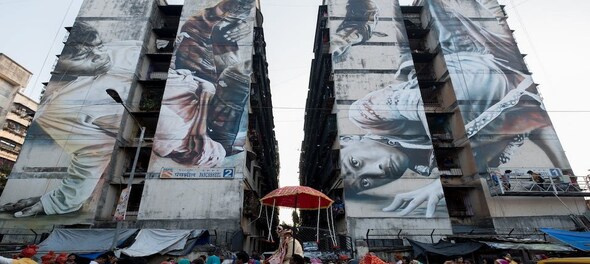
As the World celebrates the 50th anniversary of global hip-hop, it's impossible to ignore the seismic impact this genre has had on music, fashion, and culture across the globe. While I wrote in my previous column on how the hip-hop roots trace back to the gritty streets of the Bronx, New York, the reality is that the genre has evolved and resonated with countless communities worldwide. And one such extraordinary evolution can be witnessed in the diverse and vibrant landscape of hip-hop in India.
Over the past few years, hip-hop has grown from an underground movement to a mainstream cultural force, connecting with Indian youth and carving a unique space within the country's pop culture tapestry.
The Beginning
The real journey of hip-hop in India can be traced back to the early 2000s, with artists like Baba Sehgal experimenting with rap verses in their songs. Although the genre was made to be a custom-fit for typical Bollywood songs and mass appeal, these songs and integrations did make ‘hip-hop’ a popular and “cool” genre in late 90s.
However, it was not until the last decade that the genre truly found its footing in the country. Inspired by global icons like Eminem, Jay-Z, and Tupac, a new generation of Indian artists emerged, eager to share their stories and experiences through rhythmic poetry.
Desi Hip Hop
The true turning point for Indian hip-hop arrived with the advent of "Desi hip- hop" -- a movement that aimed to infuse local flavours into the genre while staying true to its essence. In the first decade of 2000s, many local and global independent filmmakers started making documentaries on the underground hip-hop scene of India spawning in the streets of neighbourhoods like Dharavi in Mumbai, and provided a glimpse into the lives and struggles of Mumbai's underground hip-hop movement.
These films and documentaries usually highlighted how young hip-hop artists from Rappers to Breakdancers to Graffiti artists were using their music as a medium to voice their concerns, send out anti-establishment messages and reflect the realities of life in the fast changing Urban India.
There have been passionate individuals like Akash Dhangar, popularly known as BBoy Akku, who recognised the revolutionary power of hip-hop and started 'SlumGods Hip-Hop' movement as early as 2009 in Dharavi, aiming to provide a platform for aspiring artists from marginalised communities. Witnessing the tremendous talent and potential within these communities, Akash envisioned a sustainable ecosystem that would empower artists and youths through hip-hop.
Gully Boy and Mainstream Recognition
The watershed moment for Indian hip-hop came with the release of the film "Gully Boy" in 2019. Inspired by the lives of Divine and Naezy, the movie struck a chord with audiences across the nation and put Indian hip-hop on the mainstream map. Ranveer Singh's portrayal of a struggling rapper resonated deeply, and the film's soundtrack, including tracks like "Apna Time Aayega," became cult anthems of aspiration for a generation. The movie's success not only elevated the profile of these artists but also opened doors for many others to step into the limelight.
Diverse Voices, Diverse Stories
What makes the Indian hip-hop scene truly remarkable is its diversity. Artists from various backgrounds and regions are using the genre to share their unique stories. For instance, rapper Prabh Deep delves into socio-political issues through his thought-provoking tracks, while artists like Arivu from The Casteless Collective of Chennai, talk about extremely sensitive issues such as caste-based discrimination and the political scenario of the country.
Global Collaborations and Recognition
In recent years, Indian hip-hop has not only captured hearts within the country but has also garnered international attention. Collaboration between Indian artists and global icons has become increasingly common. For example, rapper DIVINE teamed up with American rapper Nas on the track "NY Se Mumbai," showcasing the genre's global appeal and reach. In his last released album, Divine released multiple songs featuring collaborations with multiple global hip-hop artists.
The Journey Ahead
It's worth highlighting on the 50th Global Anniversary of hip-hop that the genre has found a firm footing in India. The movement has grown from the underground to the mainstream, offering a platform for diverse voices and stories. With every beat and lyric, Indian hip-hop is forging its unique identity while paying homage to its global roots. As the genre continues to evolve, it will undoubtedly influence and shape the cultural landscape of India for years to come.
The journey of hip-hop in India, from its humble beginnings to its present prominence, is a testament to the genre's universal appeal and power to transcend boundaries. Hip-hop, as popularly said, is not simply a genre of music. It is a lifestyle, a cultural phenomenon and a community which is defined by unity and diversity.
Photo credit: Pawas Jain
(Edited by : C H Unnikrishnan)
First Published: Aug 8, 2023 6:39 AM IST
Check out our in-depth Market Coverage, Business News & get real-time Stock Market Updates on CNBC-TV18. Also, Watch our channels CNBC-TV18, CNBC Awaaz and CNBC Bajar Live on-the-go!


Delhi Congress chief Arvinder Singh Lovely resigns
Apr 28, 2024 10:54 AM
Lok Sabha polls: Voter turnout in Rajasthan over 62%, down by 4% since 2019
Apr 28, 2024 8:49 AM

